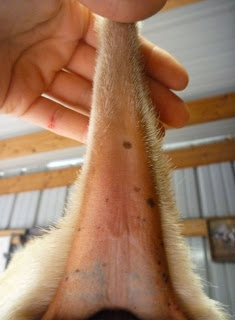Since day one, I have been homeschooled by my two loving parents. From my first day of school, I have enjoyed learning in the comfort of my own home, away from the many distractions that can often be present in a traditional public school. Real-life experiences are in every aspect of my daily life, and here are some examples of what my siblings & I are involved in:
- Buying & selling animals
- Having both business & personal conversations & daily interactions with adults
- Learning to cook, organize and be a homemaker & homesteader
- Gaining knowledge about lost & dying trades & activities
- Slaughtering and butchering livestock
- Learning to live off the land by growing & harvesting our own food
- Field trips with other homeschoolers
- Line dancing and choreographing dances with friends
- Learning how to start and operate your own business (most of us have some sort
- Lessons on managing money, time and finances
- Songwriting and singing
- Learning to play musical instruments
There are many more things that we learn on a daily basis that I could list off, but there are too many to list here. Many of the activities in this list are the real-life things that a public school child might not have time to learn, considering the limitations he/she has due to the typical school system schedule.
I would also like to take this opportunity to dispel some of the most common misconceptions about homeschooling, & to answer some of the most common questions we hear from curious folks:
Question:
"What do you do about socialization?"
Answer :
We have the benefit of learning to socialize with many different age groups, not just our peers. Field trips and other learning activities with other homeschoolers take place on a weekly basis, and are a very important part of our education experience. Being able to carry on a good conversation with an adult is a very important skill to learn and starts at a very early age. This skill enables home-educated children to be able to communicate with the real world when they grow up. Most of my siblings & I already have our own home businesses that we run, in which we communicate with clients on a regular basis.
Question:
"How will they ever be able to get a college education?"
Answer :
It is often thought that we (homeschoolers) won't be smart enough to go to college. Well, that is not at all true, in fact, home schooled kids often excel when compared with the average public school student. Check out this article from the
Home School Legal Defense Association:
http://hslda.org/docs/nche/000000/00000017.asp - Many homeschooled students go on to receive a college degree, & many universities actually desire home-schooled students because of their self-motivated style of learning & excellent track record of excelling in the college setting.
Question:
"How can a parent teach without a teaching degree?"
Answer :
Although some states in the US require a teaching credential for a parent to home educate their child, most states do not. A parent makes a perfect teacher, because they know their child better than anyone else could. There is a one-on-one connection with the parent & the child, & the parent can focus on strengthening any learning weaknesses the child may have.
Question:
"Aren't you bored with being schooled at home?"
Answer :
The fact is, no, I'm not bored with home schooling at all. I'm so busy with being taught new things every day, meeting new people all the time, studying, running my own business and socializing with friends, that there really isn't any time or reason to be bored. I feel very protected and safe right here, being taught by my parents at home. Because of my great home-education experience, I will be fully armed in the future with the information & skills I will need to be successful.
Question:
"Are you out of school today?"
Answer :
This question is asked by people when we go shopping or run errands on a "school day". Usually when we go to town, we are either just taking a break from bookwork to run into town and grab a few needed supplies, or we pack the backpacks full of our books and do school on the road...but school is never over for us! The grocery store is even a learning experience. Problem solving & math equations in the aisles are very common for us, LOL! For example, Mom will teach us how to calculate the unit price on food items in order to get the best value on the product. So, the answer is really no, we're not out of school today! We're on a real-life learning "field trip" :)
There are quite a bit more curious questions we get asked, but it's just too many to list! I think there are many well-meaning people who are simply curious about what home-schooling is all about & they want to learn more about it. I am more than happy to help them understand this wonderful method of education.
This was my essay project today, which my mother (teacher) assigned to me. I hope, by reading this, you've gotten a better appreciation for homeschoolers and their unique place in our society. The conclusion to this article is that homeschooling, if done correctly, can and will (Lord willing) produce a generation of smart, ethical and resourceful citizens of the United States.
Have a blessed evening and please feel free to leave your comments or questions!
~Hannah












